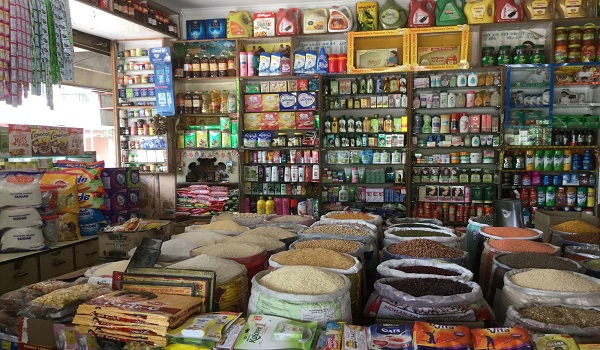Kiranas, or small grocery stores, are observing a revival in business, with sales returning to pre-pandemic levels and higher product stocking, even though the habit of shopping online and from modern trade gained by consumers during COVID remains, according to numbers from researcher NielsenIQ and the financial results of top FMCG firms.
But industry executives believe that kiranas are also seeing a substantial uptick in business, and many markets in urban and semi-urban India are experiencing a balance between traditional trade and new channels. FMCG companies said they would continue their thrust on direct distribution in both urban and rural markets.
According to NielsenIQ, the traditional trade, led by small grocers, reported volume growth of 1.9%. It was after four quarters that they began reporting an expansion in business. As of March, modern trade, which was on a positive growth trajectory, grew at the fastest quarterly pace at 14.6% in the January-March period.
NielsenIQ reported that for the first time in the past year, a turnaround in traditional trade was seen, witnessing a consumption growth revival of 1.9% (on a very large base), primarily driven by grocers. Small shops (traditional trade) were under duress for more than a year.
The latest financial results of companies show that modern trade and e-commerce together account for more than a fifth of total sales for most FMCG companies, including Dabur, Parle Products, and Tata Consumer Products, with e-commerce’s growth rate being the fastest.
For Tata Consumer Products, the contribution of e-commerce has gone up from 7.3% of sales in FY22 to 9% last fiscal year, which ended March 31. Modern trade is now 14% of sales.
For Hindustan Unilever, digital accounts for 30% of sales now as compared to 20% a year ago. The figure includes orders placed through e-commerce sites, its 14 direct-to-consumer websites, and the Shikhar app, which is for B2B orders.
FMCG companies said that regardless of the sturdy growth rate in modern trade and e-commerce, they would continue their push on direct distribution in both urban and rural markets, targeting small grocers.
Nestle SA said in its latest annual report that growth in India had been driven by “increasing distribution of products in small shops” across big markets and towns. Beverage maker Coca-Cola’s India unit stepped up the availability of its products to over 300,000 retail stores in the quarter ended March 31, 2023, the Atlanta-based company said.
While traditional trade accounts for over 90% of FMCG volumes, the channel slowed down during the pandemic when consumers switched to grocery e-commerce. In fact, the general trade would be the key channel of the future, even though it has been underperforming in the last few quarters since a significant portion of that has been in rural markets.


